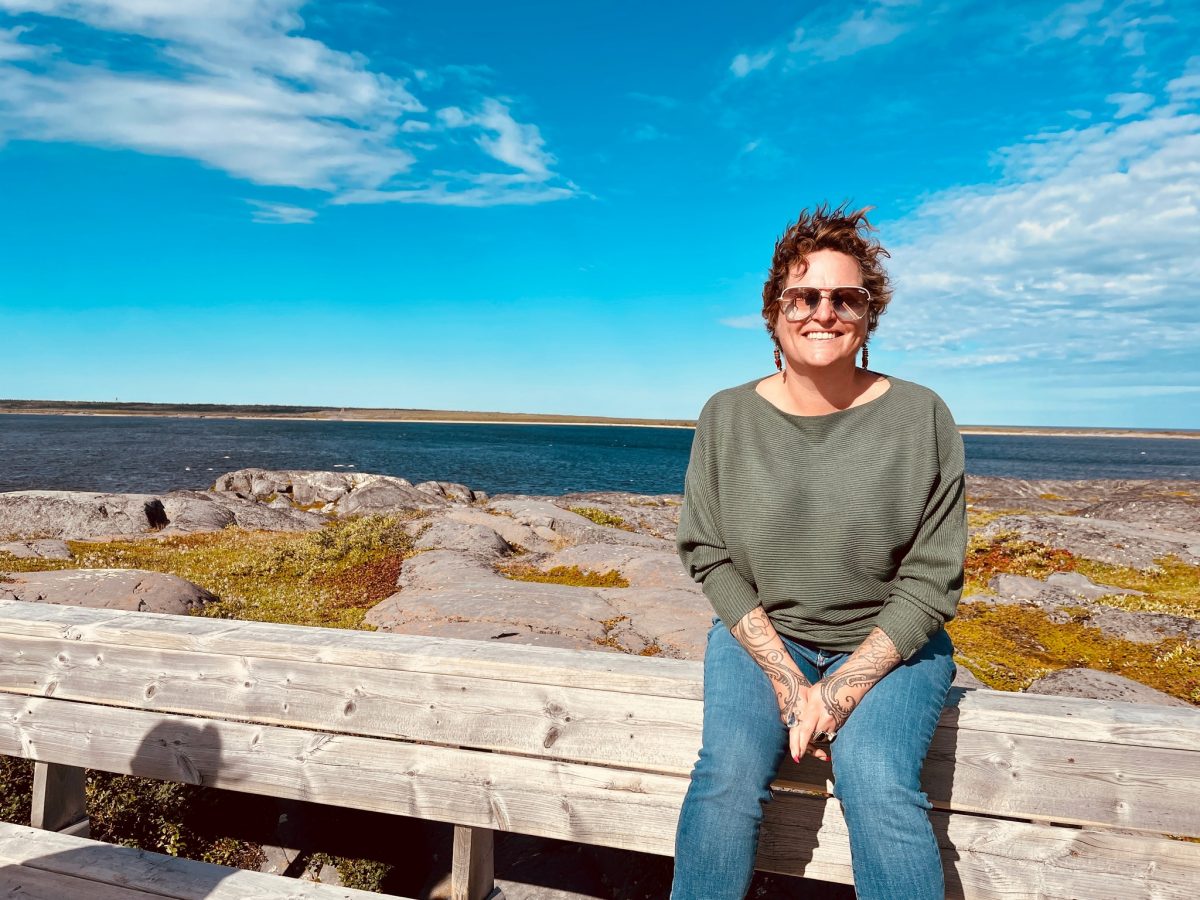
Student scholarship recipient to develop a community wellness strategy
Learn how UM PhD student, Stephanie Van Haute, is using her lived experience as inspiration for research
As a Red River Métis scholar, health leader and practicing registered nurse since 2003, Indigenous health equity and reconciliatory practice within Manitoba’s nursing and health sector is of both personal and professional importance to Stephanie Van Haute [MN/21]. After graduating high school, it wasn’t her initial dream to become a nurse. She started her post-secondary education at Red River College, where she earned a diploma in nursing. Commitment to supporting global health equity led her to working with Medecins Sans Frontiers (Doctors without borders), which required a Bachelor’s degree to apply. That led her to California State University to get her degree and then, eventually, to three tours in sub-Saharan Africa eventually working as Medical Team Lead responsible for overseeing health services for nearly 1.2 million in people in the Democratic Republic of Congo.
“Even if I was reluctant at first, over the 21 years I had been working in nursing, I had fallen in love with the profession and so it only made sense for me to pursue my master’s degree,” said Van Haute. “Out of all the mainstream health professions, to me, nursing offers the most holistic patient-centred and family-centred lens on how to care for people and how to design and plan health systems and that’s what I’m really interested in.”
Having completed her master’s, she jokes that she is now in nursing school for the fifth time as she works to complete her PhD. Her research, concentrated in Churchill, Manitoba, focuses on incorporating Indigenous ways of knowing to guide health systems planning, including the use of traditional healing practices into the health system. Her project, tied directly to truth and reconciliation, asks what it means to privilege Indigenous ways of knowing and doing alongside more mainstream health services.
“The goal is to bring together Indigenous community members, Knowledge Keepers, and health facility staff to have conversations around where we’ve been, where are we now, and where we want to go in the future. By creating spaces for dialogue on how to bring together different and sometimes opposing worldview, we can find a way to move forward collectively. Then [we will] hopefully apply these learnings across Canada, but especially to the larger part of the health system here in Manitoba,” she said.
Van Haute wanted to pursue a PhD because she saw it as an opportunity to promote Indigenous health equity, an area of study she’s passionate about. Wanting to honour that with as much time and space as possible, and recognizing the intense mental focus and concentration completing a PhD requires, she applied for and received the 2023-24 Indigenous Doctoral Program Fellowship and the 2023-24 Foundation for Registered Nurses of Manitoba Inc. Graduate Scholarship and Award.
“I am so grateful to receive these awards because they’ve allowed me to carve out some time to give myself and others the gift of doing my dissertation work in a good way,” she said. “Throughout my academic career, I have always worked close to full-time while also being a full-time student. My goal for when I completed my coursework for my PhD program was not to work so that I could devote my time to my research and to the community of Churchill.”
Another reason Van Haute wanted to pursue a PhD is because she knows that social advancements rooted in political activism also require support from structures such as academia to bring meaningful and systemic change. This research is a great example of that because it allows for the centering of the voices of Indigenous community members working alongside Indigenous and non-Indigenous clinicians and health leaders, who may have previously not been able to influence changes to the health system. By using her own and others’ lived experience, she can uncover where the health system’s priorities have conflicted with the community’s and support the community to move forward together.
“While I’m truly grateful and feel honoured for the scholarships and fellowships I’ve received, I believe this funding is about so much more than just me,” she said. “Scholarships, like I’ve received, are about supporting students that are going to be carrying this forward for the next generation. In turn, they will pass it on again, hopefully toward the advancement of society as a whole.”
As a Métis woman from the Red River Métis settlement here in Treaty 1 Territory, Van Haute is also thankful for the opportunity to connect with her Indigenous community.
“I’m learning how beautiful reclamation of culture and reclamation of ceremony can be and what that can mean for people in the community,” she said. “Coming out of Africa, working in famine, working with war zones, I was carrying a large amount of vicarious trauma and not realizing the impact it was having on me. I wasn’t born in culture, so when I started healing and connecting to my culture through my ceremony family, it shifted the way I understood things and brought together my nursing experience with traditional health and healing practices.”
You—our generous UM community—keep showing us how inspiration changes everything.
Whether you are supporting health as a human right, advancing reconciliation and promoting Indigenous achievement, climate change research, or transforming the learning experience, you are making the world a better place.
Read more in our Gratitude Report





